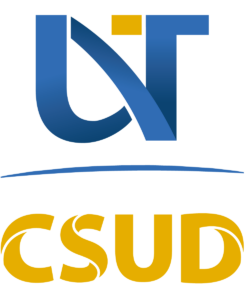Field of Mathematics
The doctoral field of Mathematics has a long-standing tradition at the West University of Timișoara (UVT), with the achievements of doctoral advisors and PhD students having had a significant international impact for over five decades. As of 2024, this field is administered by the Doctoral School of Exact and Natural Sciences (ȘDȘEȘN) within UVT, and its mission is to coordinate doctoral programs in Mathematics, Applied Mathematics, and Interdisciplinary Mathematics.
This doctoral program continues the tradition and culture of academic excellence established since its inception, upholding high standards in line with those of prestigious universities.
The program’s primary objectives include training doctoral researchers for the PhD title in Mathematics and providing postgraduate programs focused on current, high-interest research topics for the academic community. These programs aim to produce doctoral theses with consistent results validated through publications in top academic journals. A primary goal is to achieve recognition through citations of doctoral research results and to encourage continued research through postdoctoral programs, specialized companies, universities, and research institutes.
The curricula are approved annually by the SDSESN Council and are drawn up in accordance with current legislation and the standards of ARACIS (Romanian Agency for Quality Assurance in Higher Education).
Doctoral supervisors
- Prof. univ. dr. BALINT Ștefan (CV)
- Prof. univ. dr. JEBELEAN Petru (CV)
- Prof. univ. dr. habil KASLIK Eva (CV)
- Prof. univ. dr. habil LĂZUREANU Cristian-Virgil (CV)
- Prof. univ. dr. habil NEAMȚU Mihaela (CV)
- Prof. univ. dr. habil PREDA Ciprian Ion (CV)
- Prof. univ. dr. habil SASU Adina Luminiţa (CV)
- Prof. univ. dr. habil SASU Bogdan (CV)
- Prof. univ. dr. habil VIZMAN Cornelia Draga (CV)
Thematic areas of interest (2026)
Prof. Petru JEBELEAN
- Nonlinear elliptic boundary value problems
- Topological and variational methods
Prof. habil Eva KASLIK
- Mathematical modeling; network dynamics; neural networks; neuroscience applications
- Fractional-order systems; delay differential equations; impulsive differential equations; stability analysis; bifurcation theory
- Nonlinear dynamical systems; control theory; complex systems
Prof. habil Cristian-Virgil LĂZUREANU
- Continuous dynamical systems
- Discrete dynamical systems
Prof. habil Mihaela NEAMȚU
- Delay dynamic models
- Stability and bifurcations
- Applications in economics, biology, and the environment
Prof. habil Adina Luminiţa SASU
- Asymptotic behavior of discrete and continuous dynamical systems
- Control theory and applications
- Qualitative theory of evolution equations
Prof. habil Bogdan SASU
- Asymptotic behavior of dynamical systems
- Qualitative theory of discrete systems and evolution equations
- Control theory
Prof. habil Cornelia Draga VIZMAN
- Infinite-dimensional differential geometry
- Diffeomorphism groups
- Symplectic geometry, geometric mechanics
Useful information
Proposed topics for admission (2026)
For the complete list of topics, please consult the table (link).
The funding status of each topic (scholarship-based budget, budget without scholarship, or tuition fee) is determined based on the admission competition, in accordance with the UVT methodology.
Admission
The admission examination consists of an oral test, structured in two stages:
- Assessment of the candidate’s knowledge based on the list of topics and the recommended bibliography;
- Presentation of the research project.
Each member of the evaluation committee will assign grades from 1 to 10 for the following:
- N1 – The candidate’s level of preparation in relation to the list of topics corresponding to the chosen doctoral research theme;
- N2 – The proposed research project;
- N3 – The candidate’s previous academic record (and research activity, if applicable).
The score awarded by each evaluator is the arithmetic mean of the three grades: N1, N2, N3.
The final admission score is the arithmetic mean of all scores given by the evaluators.
The minimum admission score required is 7.00.
For more details regarding application files, the admission calendar, and the organization of the doctoral admission process within the Doctoral School of Exact Sciences and Natural Sciences, please consult the Admission Regulations of the DSESN and the UVT Doctoral Admission Methodology.
Resources
- Access to the computing infrastructure at the High-Performance Computing Center (HPC) (link), which operates within the Computer Science Research Center (link). The computing resources, hosted in a container-type data center, include several CPU and GPU clusters, the most recent being the MOISE Cluster, acquired in 2022.
Doctoral students may request access (by emailing support@info.uvt.ro) to both the HPC resources and the equipment in the Cybersecurity and Robotics laboratories.
- Access to scientific databases for documentation through the UVT network (e.g., IEEE Electronic Library, Science Direct – Computer Science, SpringerLink Journals, etc.).
Curriculum
Courses
Variational Systems with Control
Geometric Evolution Equations
Completion of studies
For more details about the IOSUD-West University of Timișoara study completion procedure, please visit the Doctoral Studies > Completion of doctoral studies page (link).
For field-specific details, please consult the following:
- Order of the Ministry of Education and Research no. 3018/2025, dated January 13, 2025, on the approval of the minimum mandatory national standards required for awarding doctoral degrees, published in the Official Gazette no. 78 of January 29, 2025
(applicable to doctoral students admitted from 2025 onward) (link) - Order of the Ministry of National Education no. 5110/2018, dated September 17, 2018, regarding the approval of the minimum national standards for awarding doctoral degrees, published in the Official Gazette no. 817 of September 24, 2018 (link)
(applicable to doctoral students admitted before 2025) (link) - The National Guide for Writing Doctoral Theses related to the Field of Study (forthcoming publication)
- Sections concerning the graduation procedure in the Regulations of the Doctoral School to which you are affiliated
